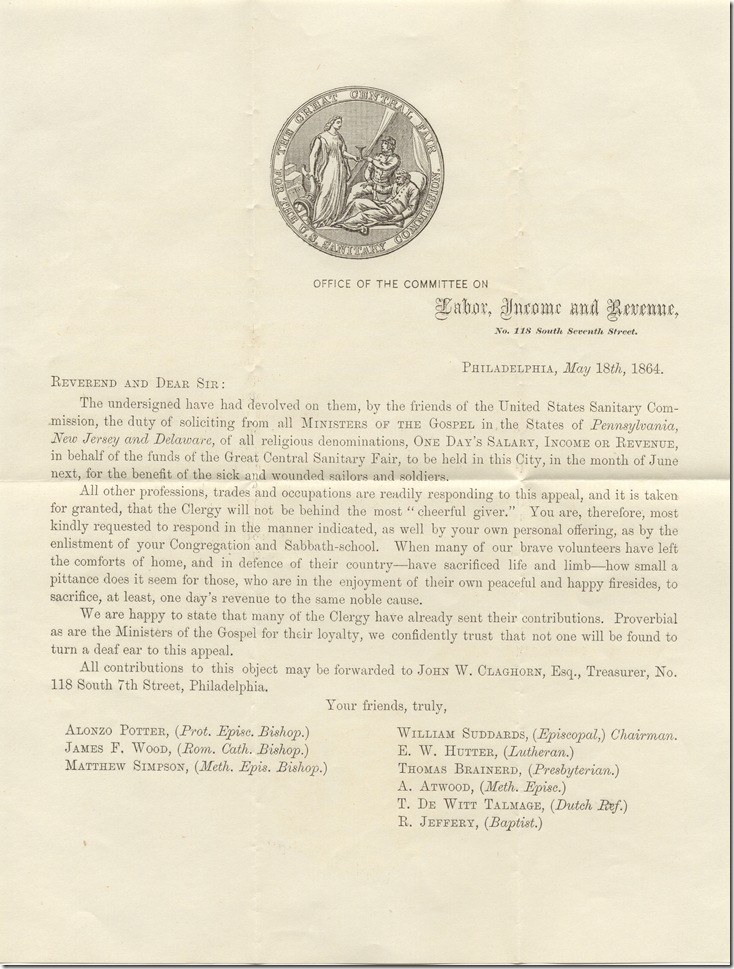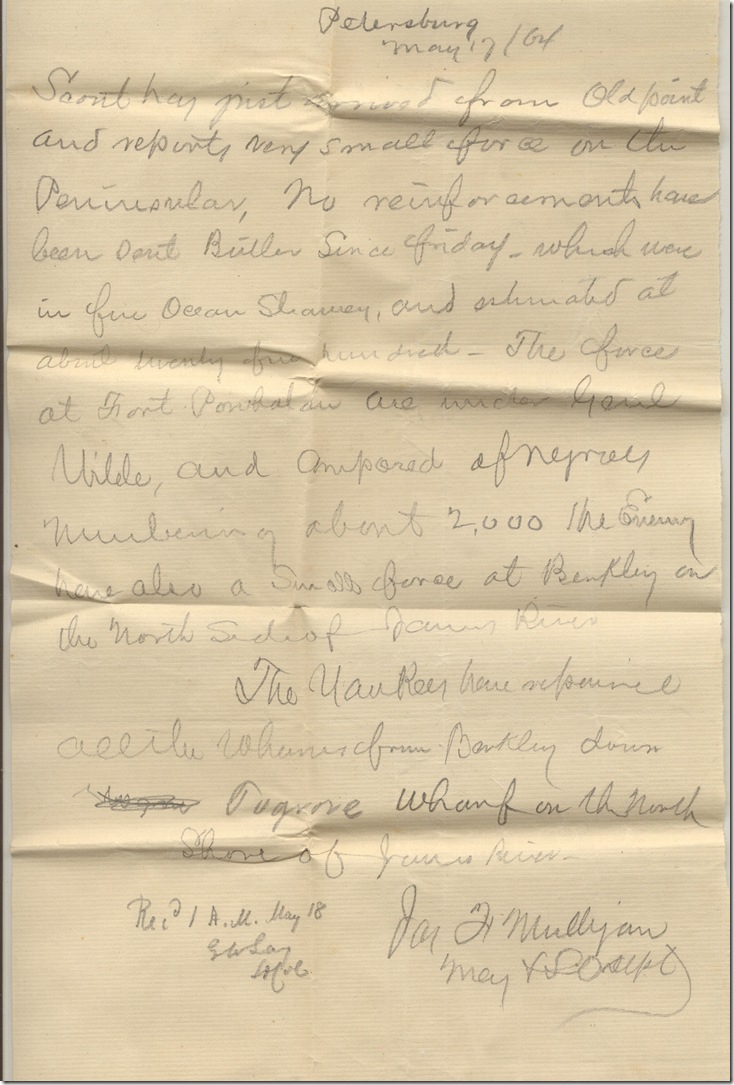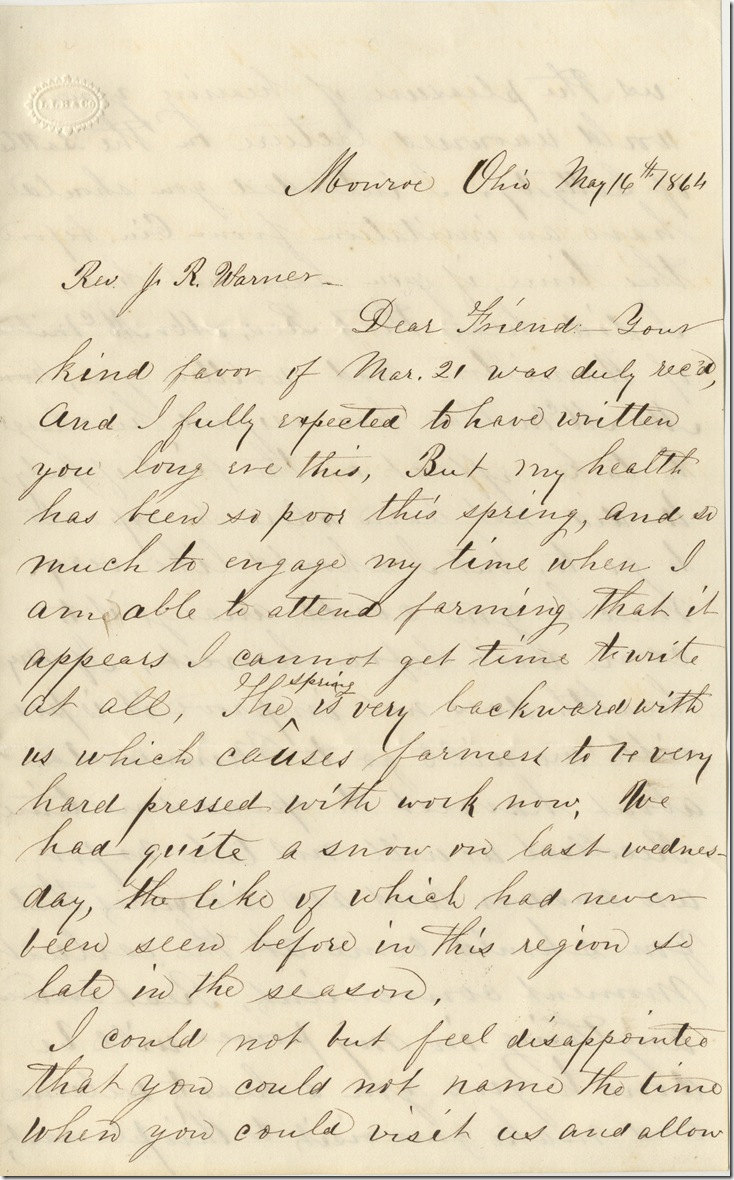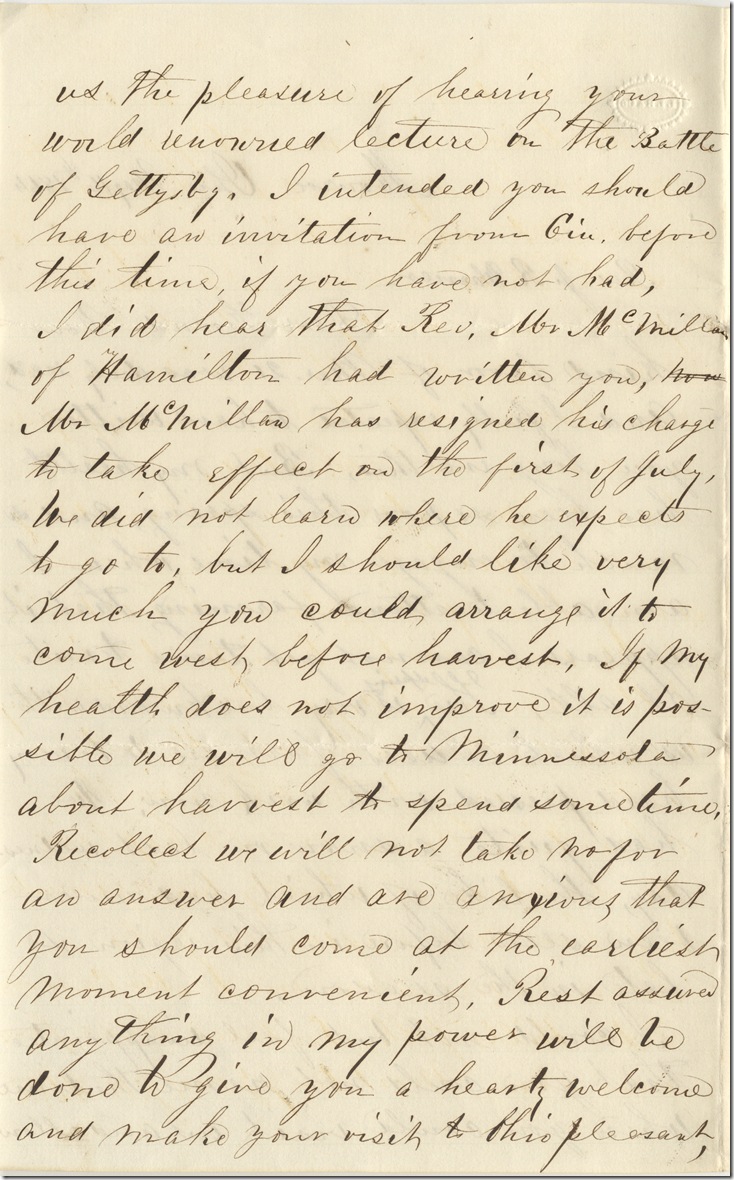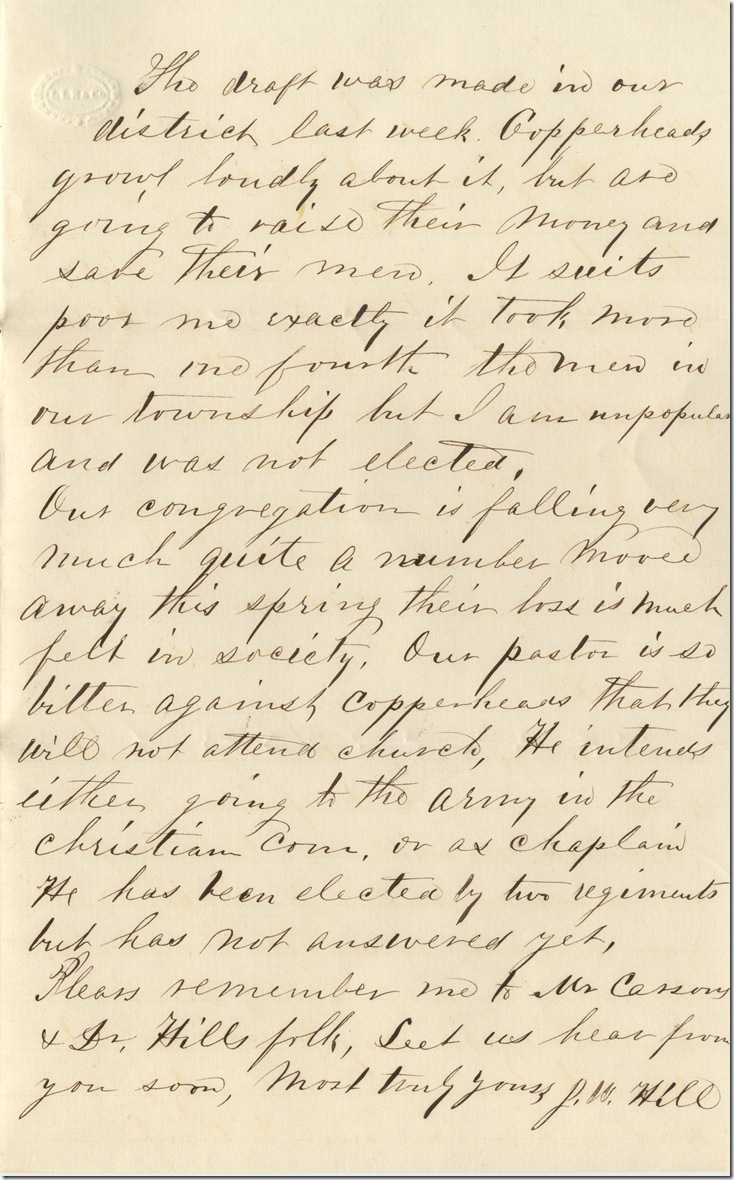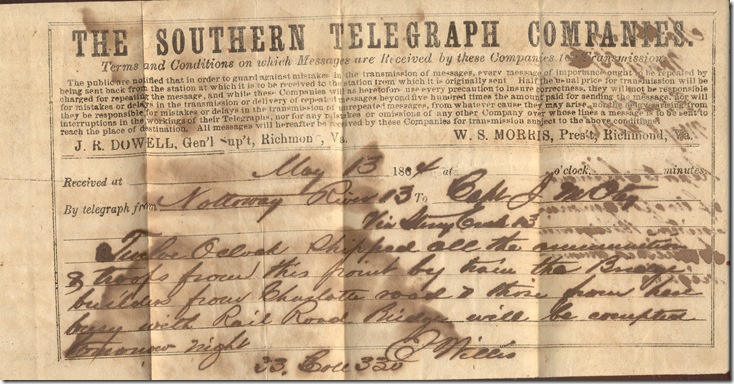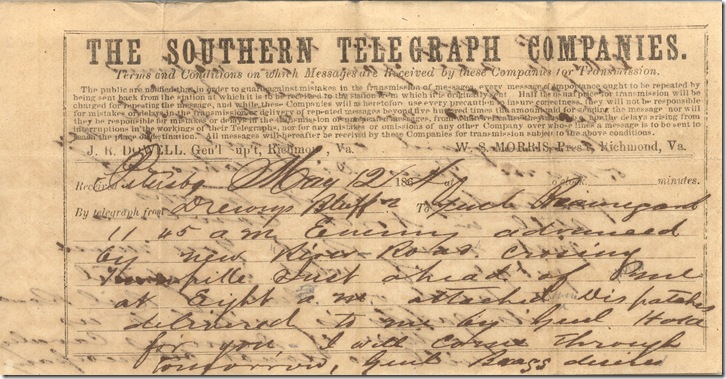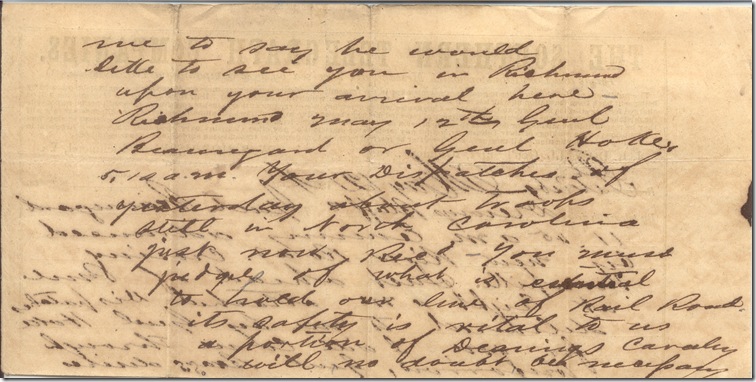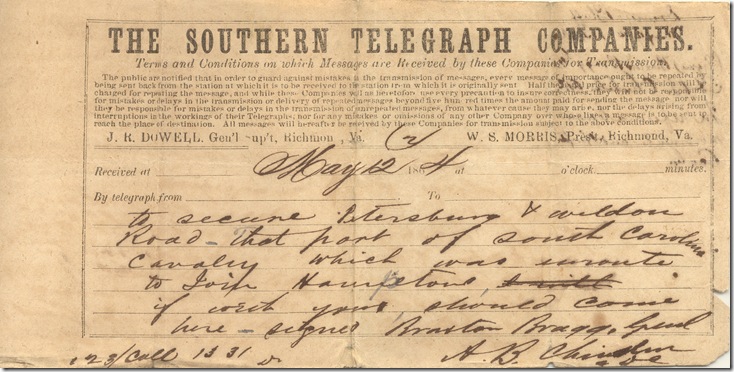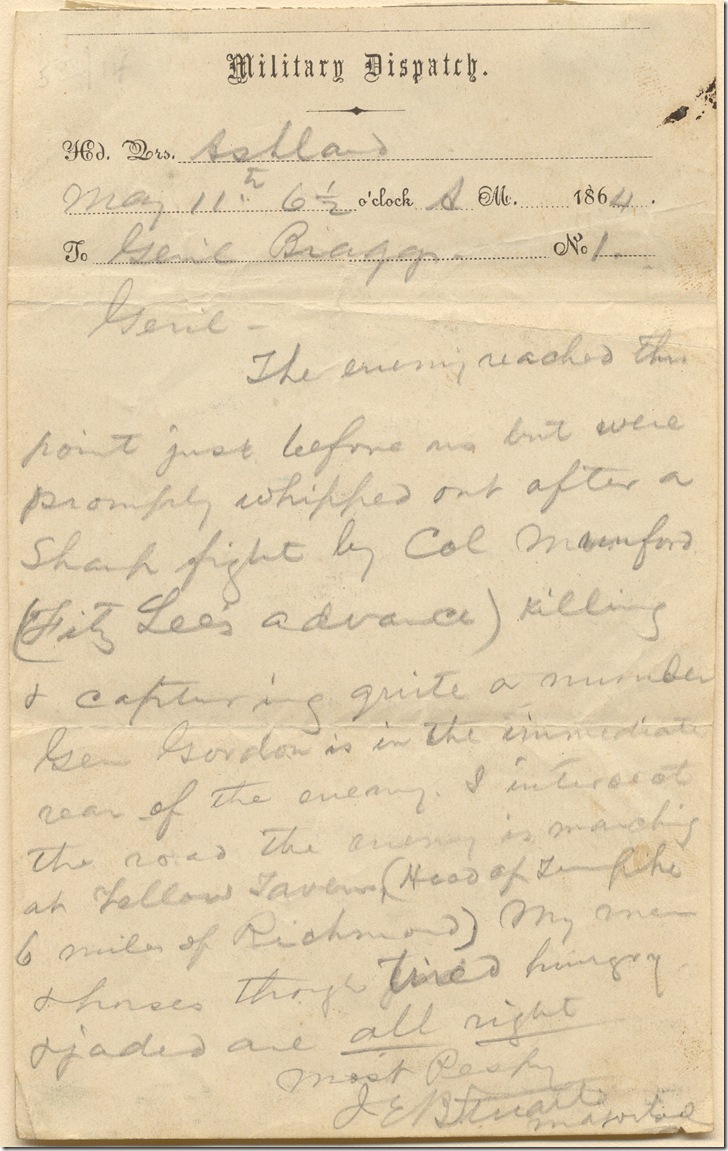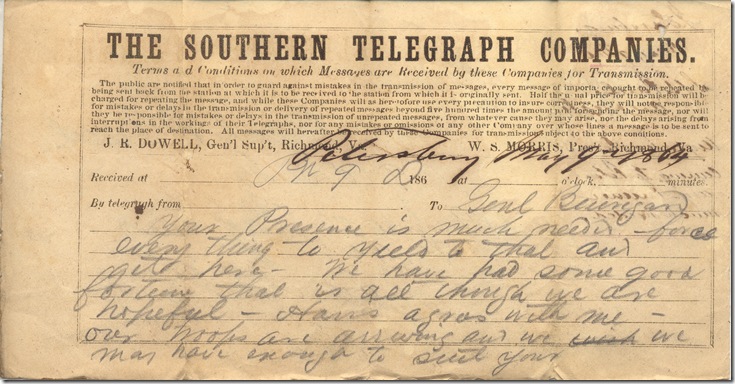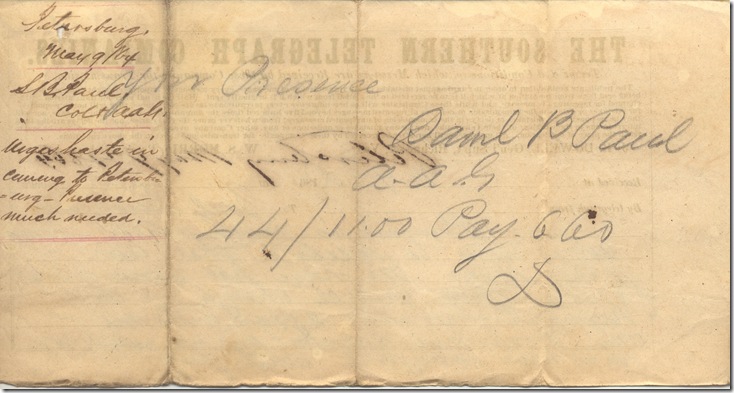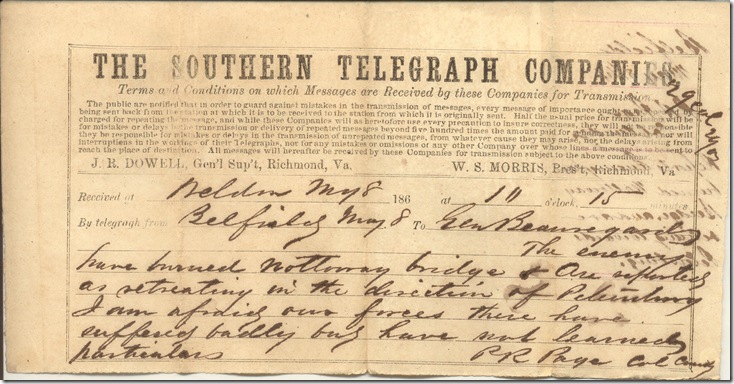Pierre Gustave Toutant Beauregard was a Louisiana-born general of the Confederate States Army. He had graduated second in his class from West Point in 1838 and was an admirer of Napoleon. He achieved fame early in the Civil War for commanding the Fort Sumter bombardment and as the victor of the first battle of Manassas. He later served in the Western Theater (including Shiloh and Corinth), Charleston, and the defense of Richmond, but his career was hampered by friction with Jefferson Davis and other generals.
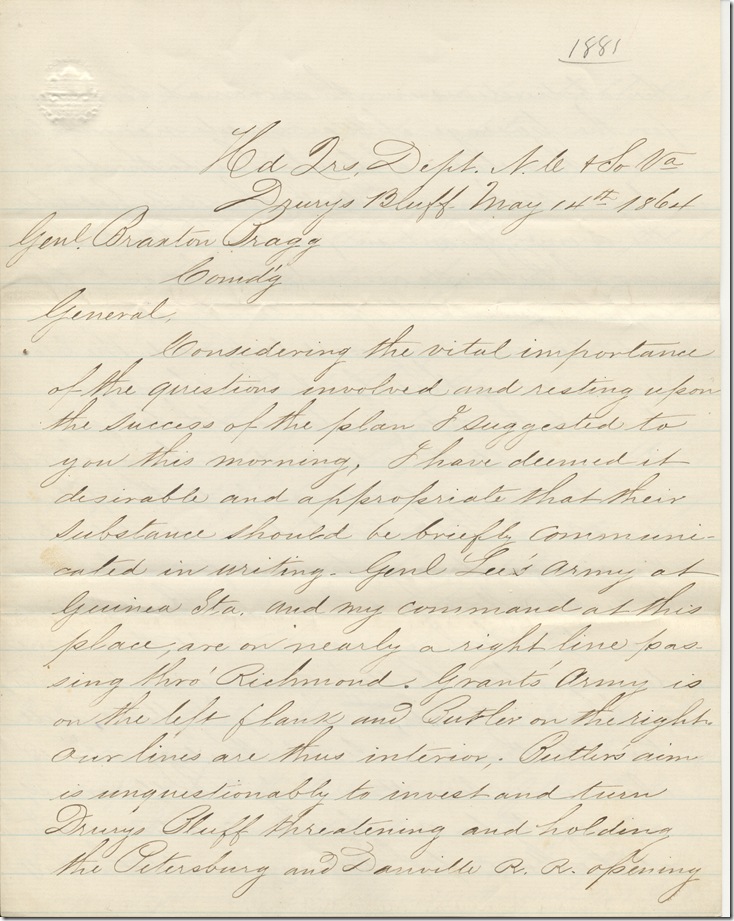
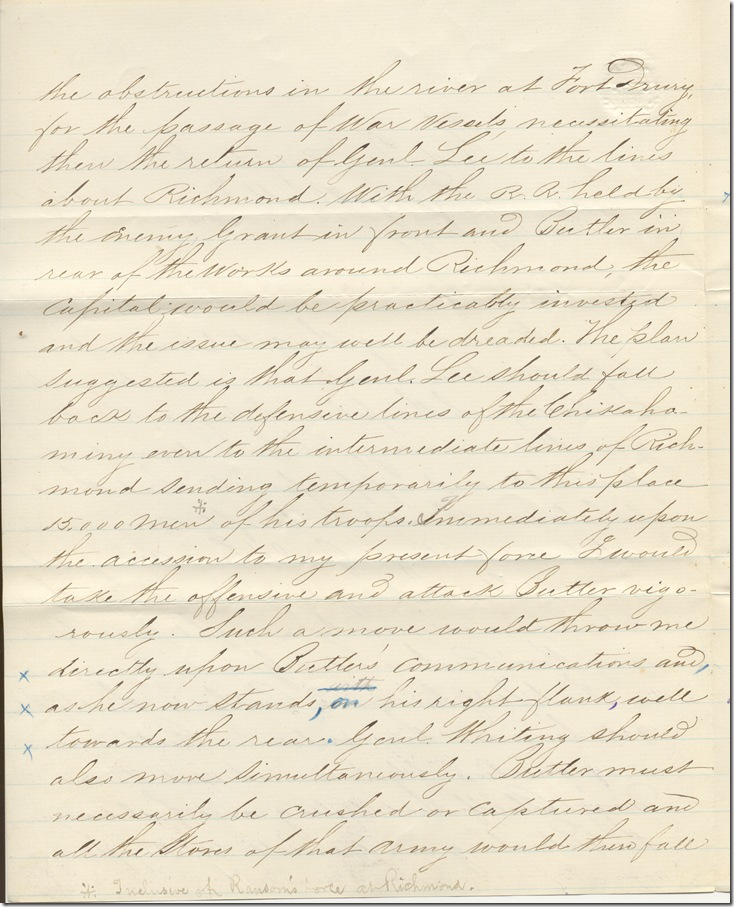
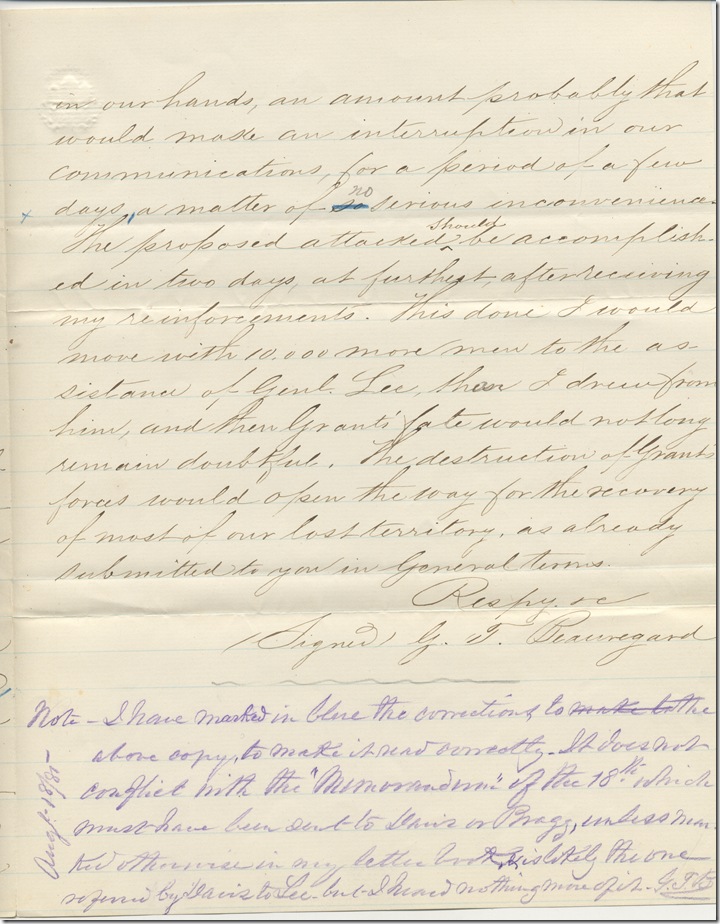
Transcript:
Hd. Qrs. Dept N.C. & So Va.
Drurys Bluff. May 14th 1864
Genl. Braxton Bragg
Comd’g
General,
Considering the vital importance of the questions involved and resting upon the success of the plan I suggested to you this morning, I have deemed it desirable and appropriate that their substance should be briefly communicated in writing. Genl. Lee’s Army at Guinea Sta. and my command at this place are on nearly a right line passing thro’ Richmond. Grant’s Army is on the left flank and Butler on the right. Our lines are thus interior; Butler’s aim in unquestionably to invest and turn Drury’s Bluff threatening and holding the Petersburg and Danville R.R. opening the obstructions in the river at Fort Drury, for the passage of War Vessels, necessitating then the return of Genl. Lee to the lines about Richmond. With the R.R. held by the enemy Grant in front and Butler in rear of the works around Richmond, the Capitol would be practically invested and the issue may well be dreaded. The plan suggested is that Genl. Lee should fall back to the defensive lines of the Chikahominy even to the intermediate lines of Richmond sending temporarily to this place 15,000 men of his troops. Immediately upon the accession to my present force I would take the offensive and attack Butler vigorously. Such a move would throw me directly upon Butler’s communications and as he now stands, on his right flank, well towards the rear. Genl. Whiting should also move simultaneously. Butler must necessarily be crushed or captured and all the stores of that Army would then fall in our hands, an amount probably that would make an interruption in our communications, for a period of a few days, a matter of no serious inconvenience. The proposed attacks should be accomplished in two days at furthest, after receiving my reinforcements. This done I would move with 10,000 more men to the assistance of Genl. Lee, that I drew from him, and then Grant’s fate would not long remain doubtful. The destruction of Grant’s forces would open the way for the recovery of most of our lost territory, as already submitted to you in General terms.
Respy. &c
Signed G. T. Beauregard
Citation: G. T. Beauregard (1818-1893), telegram to Braxton Bragg. Drewry’s Bluff, Va.; 14 May 1864. AMs 358/26
